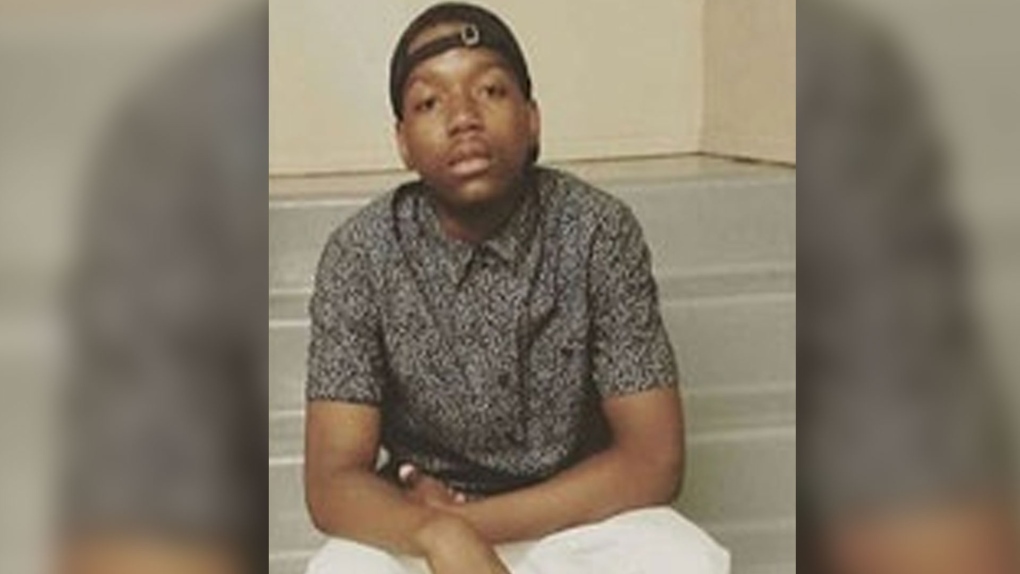Shopping
Twin brothers granted new trial, alleged accomplice acquitted in 2016 ‘Pizza Pizza’ murder case

Ontario’s top court has ordered a new trial for twin brothers formerly convicted of killing a stranger in a Toronto Pizza Pizza outlet and acquitted their alleged accomplice, citing in large part a “tainted” witness account.
Shakiyl Shaw, Lenniel Shaw, and Mohamed Ali-Nur were initially convicted of first-degree murder in the death of Jarryl Hagley, 17, in 2019. Hagley was fatally shot in a Weston Road Pizza Pizza outlet three years earlier, in October 2016.
In an Ontario Court of Appeal decision released on Feb. 16, Justice Jill Copeland’s judgment, on behalf of a panel of three judges, found errors in the charge made to the jury in the 2019 trial, along with “significant frailties” in the testimony of key witness Winston Poyser.
Poyser, who was initially also facing a murder charge in Hagley’s death, was standing outside the door at the time of the shooting and ran from the scene. His family vehicle had also been used to travel to and from the Pizza Pizza outlet.
In 2018. Poyser pleaded guilty to a reduced charge of accessory after the fact to murder. He was sentenced to one day in jail after 27 months of pre-trial custody, followed by two years probation.
At trial the following year, Poyser identified Lenniel Shaw and Ali-Nur as the two shooters. While the court heard that Poyser had known the Shaws for years, he testified he had only met Ali-Nur, introduced to him as “Cron Dog,” on the afternoon before the shooting.
Shakiyl Shaw, Poyser told the court, had been the getaway driver.
(From left to right): Mohamed Ali Nur, Lenneil Shaw, and his twin brother, Shakiyl Shaw, appear in court on April 18, 2019. (Sketch by John Mantha)
After an appeal heard last summer, Justice Copeland found the now-retired trial judge, Robert Clark, had erred in his charge to the jury: he failed to adequately answer a juror’s question about the absence of corroborative evidence, he failed to correct an “inappropriate” closing address made by the Crown, and he allowed the jury to consider a hearsay statement.
The errors were enough to overturn the Shaw’s convictions and grant the brothers a new trial. When reached for comment, Shakiyl’s lawyer, Dirk Derstine, told CTV News Toronto his client was “very happy and grateful” for the decision.
“He looks forward to a new opportunity to test the Crown’s case. He is very thankful for all those who have stood by him during this time,” Derstine said.
While the Shaws will be retried, Ali-Nur was granted a full acquittal with Copeland ruling Poyser’s identification of him lacked credibility — the two were “strangers” at the time of the shooting, she concluded.
“The case against Mr. Ali-Nur differed from that against the Shaw brothers,” Copeland wrote. “Mr. Poyser had known the Shaw brothers for years. His identification of them was not a stranger identification. By contrast, Mr. Poyser testified that he only met Cron Dog on the day of the shooting.”
Poyser had also been subject to improper identification methods by police, Copeland found. He was never asked to pick Cron Dog out of a photo line-up. Rather, officers inquired about Cron Dog’s identity, before showing Poyser a single photo of Ali-Nur and asking him if he recognized the person in the photo.
While it was agreed by all parties that there had been an envelope containing a photo line-up in relation to Ali-Nur in the interview room, it was never shown to Poyser.
“Why they chose not to follow proper photo line-up procedure is not explained in the trial record,” she wrote.
Copeland also noted Poyser had been unable to provide a verbal description of Cron Dog with any level of detail. He had been intoxicated and not wearing his glasses at the time of the shooting, the court heard.
“The most information he provided to police prior to being shown the single photo was that Cron Dog was a Somali male,” she wrote.
Ultimately, Copeland ruled Poyser’s evidence identifying Ali-Nur as Cron Dog bore “many of the hallmarks of unreliable stranger identification evidence” and that there was no basis “on which a properly instructed jury, acting judicially, could reasonably conclude beyond a reasonable doubt that Mr. Ali-Nur was Cron Dog.”
In turn, the Court of Appeal deemed the guilty verdict unreasonable, handing him an acquittal.
Ali-Nur’s counsel, Danielle Robitaille, told CTV News Toronto the acquittal has come with a mix of emotions.
“He’s spent the last eight years in custody, his whole adult life,” she said. “But he’s also so hopeful for the future.”
Robitaille said an acquittal on the Court of Appeal level is a rare decision, handed down only when the Crown’s case against a convicted individual is exceptionally weak.
“I think the public should be comforted in knowing their Court of Appeal is being vigilant in these situations,” she said.
The Shaws will again face charges of first-degree murder and automatic life sentences at a retrial, not yet scheduled.
 Jarryl Hagley, 17, is seen in this undated file photograph.
Jarryl Hagley, 17, is seen in this undated file photograph.










